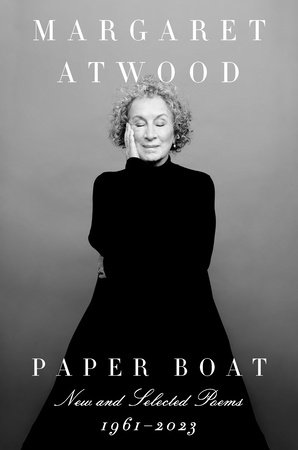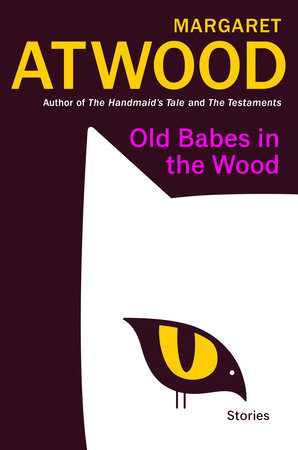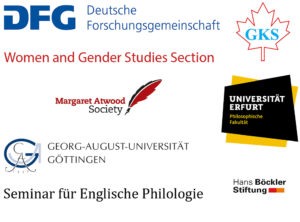Home » Margaret Atwood
Category Archives: Margaret Atwood
Top paper award from our ArtPolitical conference announced
The Margaret Atwood Society co-hosted “ArtPolitical: Margaret Atwood’s Aesthetics” October 14 through 16, 2021 at the University of Göttingen, Germany. We were pleased to award $250USD prize to the top paper, which was awarded to Manuel Sousa Oliveira (Porto) for his outstanding paper “Both Fox and Cat: The Politics of Ambiguity in The Handmaid’s Tale and The Testaments.” The first runner-up was Loredana Filip’s paper “Literary Synesthesia and Human-Nonhuman Interactions in Margaret Atwood’s MaddAddam Trilogy” and second runner-up was Tatiana Konrad for her paper “Veganism, Ecoethics, and Climate Change in Margaret Atwood’s ‘MaddAddam’ Trilogy.”
We congratulate all of our presenters and our conveners, Dr. Dunja Mohr (Erfurt) and Dr. Kirsten Sandrock (Göttingen) for an excellent conference.
The conference was also supported by the German Research Foundation, the Association for Canadian Studies in German-speaking Countries and the Hans-Böckler-Foundation.
Register for ArtPolitical: Margaret Atwood’s Aesthetics
Registration for ArtPolitical: Margaret Atwood’s Aesthetics is open now! All conference panels are available via Zoom. Register online. We look forward to seeing you there at this international conference.
14-16 Oct 2021, hosted by University of Göttingen, Germany
Conveners: Dr. Dunja Mohr (Erfurt)
and Dr. Kirsten Sandrock (Göttingen)
About the conference:
For Margaret Atwood, politics and art inherently belong together. In the pioneering poetry collection Power Politics (1971), Atwood addresses the intertwining of the personal and the political, which has run through her oeuvre ever since; “Power is our environment. We live surrounded by it: it pervades everything we are and do, invisible and soundless, like air.” (1973, 7) For decades Atwood’s work has resonated as tales of and testaments to political, socio-economic, and (bio)technological concerns of our present times. While Atwood has been vocal about politics, an environmental activist, and keenly involved with the PEN association, her writings have recently acquired a new international impact that underlines the fusion of politics and aesthetics in her work. Her classic female dystopia The Handmaid’s Tale (1985) has gained momentum as a prophetic 20th-century allegory of 21st-century political developments in the US, seeing a 670% year-on-year increase in sales and firmly sitting on the Sunday Times bestseller list for sixteen weeks in 2017. Exceptionally popularized by the multi-Emmy and Golden Globe award-winning Hulu TV series adaptation (Miller 2017–), Atwood’s dystopian work has received a surprising fan following, including admonitory dress-ups in Handmaiden gowns. The publication of Atwood’s recent Booker-prize winning The Testaments (2019), a revisiting of The Handmaid’s Tale, came along with a global fanfare, midnight book store launches including staff in the signature Handmaiden gowns, live readings, and a ‘Margaret Atwood Live’ broadcast to cinemas around the world.
In Political Aesthetics (2010) Crispin Sartwell terms the conceptual “intimate” (11) relationship between politics and aesthetics “artpolitical,” arguing that all political systems, and politics of resistance, use aesthetics and an aesthetic system. With reference to the importance of aesthetics for a political philosophy, Ernst Bloch has emphasized the important political function of narration, “Stage and story can be either a protective park or a laboratory; sometimes they console or appease, sometimes they incite; they can be a flight from or a prefiguring of the future” (1968). In this sense, literary and media representations and cultural adaptation practices contain a significant transformative potential that reaches beyond the page. Although arguably not all literature is driven by a political impetus, literature that intentionally triangularly oscillates between reality, speculation, and fiction provides an exceptional imaginary laboratory—what John Gardner called a “moral laboratory” (1978)—for ethical, political, and personal choices and for concerns about resilience, responsibilities/respons-abilities, and vulnerabilities (cf. Johnson 1993; Nussbaum 1995, 1997, Butler 2016, Haraway 2016).
Our conference seeks to address this interaction between politics and aesthetics in Atwood’s oeuvre as well as its various transmedial adaptations. We seek to explore the various facets and layers of the artpolitical in her work, including for example the themes of social and environmental justice, Anthropocene, posthumanism, the role of religion or political satire as well as social control, and (biotech-)identity. While The Handmaid’s Tale and its adaptations have gained special attention in recent years, we also welcome papers that address different works by Margaret Atwood, including her poetic, fictional, and non-fictional work as well as her speculative fiction. We invite contributions from different fields of research and are particularly interested in interdisciplinary and intersectional approaches, including political sciences, cultural and media studies or sociology.
Our call for papers suggested such topics as:
- political and literary aesthetics
- Canadian literature and power politics
- genre politics
- narratological approaches to artpolitical
- prosumers, fan culture, and political organization
- gender, body, and (national) identities
- teaching artpolitical
- the politics of writing: testimony and witnessing, knowledge and power
- posthumanism and biotech
- transmedia adaptations
- serialization, sequels and re-visions
- environmental justice, Anthropocene
- totalitarianism, political systems, surveillance, corporatism
- vulnerabilities, response-abilities, acts of resistance
Register now for “Artpolitical”–Preconference Symposium, 12 March 2021
For the International Conference,14th-16th October 2021,
at the University of Göttingen, Germany
‘ARTPOLITICAL’ – MARGARET ATWOOD’S AESTHETICS
We will hold a Pre-conference Symposium [Online]
The online event will take place on Friday, 12 March, 16-19:30h Central European Time (via Zoom).
Please register with your full name via Eventbrite: https://www.eventbrite.com/e/artpolitical-margaret-atwoods-aesthetics-pre-conference-online-event-tickets-138221812161
Also, please note: The deadline for the Margaret Atwood Society Best Paper Award for the October conference has been updated to 1 September 2021.
CFP for new MLA Approaches to Teaching Atwood Book
The MLA Press published Approaches to Teaching Atwood’s The Handmaid’s Tale and Other Works in 1996. Now the press is seeking contributions for a new volume to explore both the teaching of Atwood’s publications since that time and 21st-century approaches to her earlier works, such as strategies for teaching The Handmaid’s Tale that draw on the Hulu TV series, the graphic novel, and/or The Testaments.
If you would like to propose an original essay for the upcoming Approaches to Teaching the Works of Margaret Atwood volume, please submit an abstract of approximately 500 words in which you describe your approach or topic and explain its usefulness. The focus of your essay should be pedagogical, and the abstract should be as specific as possible. Please send your abstract and a short CV to Lauren Rule Maxwell (lauren.maxwell@citadel.edu) by August 31, 2020. Please send any supplemental materials (e.g., course descriptions, course plans, syllabi, assignments, bibliographies, or other relevant documents) as separate attachments. Surface mail submissions can be sent to Lauren Rule Maxwell; Department of English, Fine Arts, and Communications; The Citadel; 171 Moultrie Street; Charleston, SC 29409.
Margaret Atwood Society to co-sponsor first-ever ALL Margaret Atwood Conference
The Margaret Atwood Society is thrilled to announce what we hope is the first of many conferences completely dedicated to the works of Margaret Atwood, this multidisciplinary conference, to be titled “‘Artpolitical’ – Margaret Atwood’s Aesthetics,” will be hosted by University of Göttingen, Germany and will be held October 14, 15, and 16, 2021. The conference will be conducted entirely in English. The conference is created and chaired by longstanding Atwood Society member Dr. Dunja Mohr, Erfurt University and her colleague and fellow Atwood Society member Dr. Kirsten Sandrock, Göttingen University. Frankfurt (FRA) is the nearest international airport.
![]()


Full CFP and additional information can be found here.
Margaret Atwood: A Word after a Word after a Word is Power (documentary) opens Friday
The 92 minute documentary on Atwood’s life and literary career, Margaret Atwood: A Word after a Word after a Word is Power screens at the Lightbox in Toronto on Nov. 7. It then opens Nov. 8 in Hamilton and Waterloo, Nov. 11 in Edmonton, Nov. 13 in Ottawa, and Nov. 14 in Toronto.
In the United States, the documentary will start streaming Nov. 19 on Hulu. The European debut will be at the International Documentary Film Festival in Amsterdam on Nov. 23. The doc has been sold to other foreign territories besides Hulu, including ARTE in France and Germany, Sky in the U.K., and HBO for Central Europe, on top of sales to Australia, New Zealand, The Netherlands, Finland, Sweden, and even Iran.
The documentary is co-directed by Nancy Lang and Peter Raymont, who shadowed Atwood and her partner Graeme Gibson for twelve months. Sarah Polley, Adrienne Clarkson, Elisabeth Moss, and Volker Schlöndorf also appear, and Tatiana Maslany reads Atwood’s poetry and prose.
For more information on the documentary, see these articles in the Hollywood Reporter, National Post, Community Press, and Now Toronto. Follow our social media for more information on specific countries’ release dates as they become available.




Recent Comments